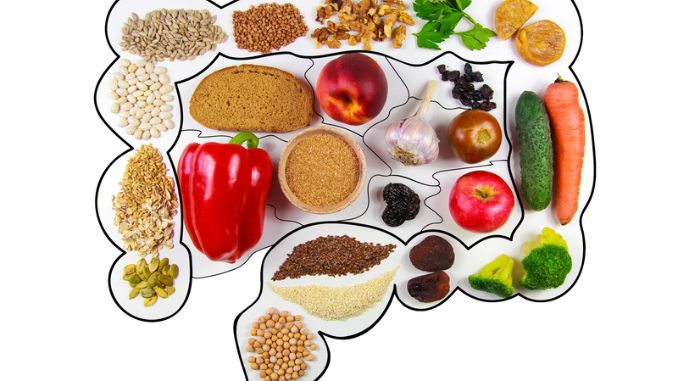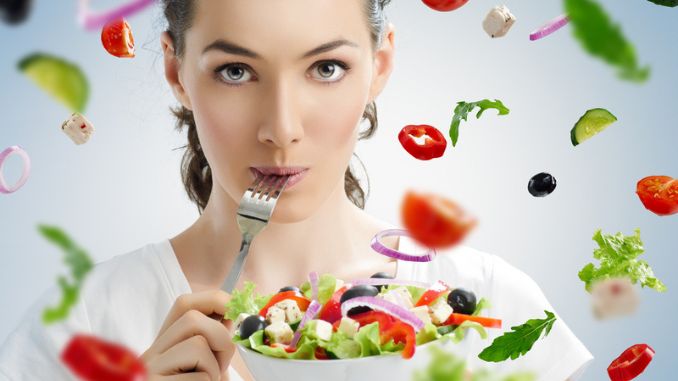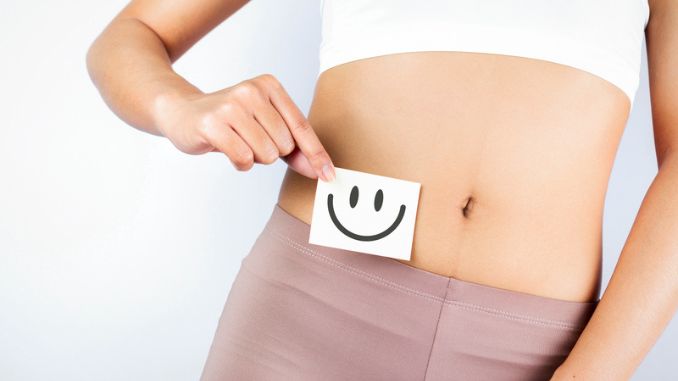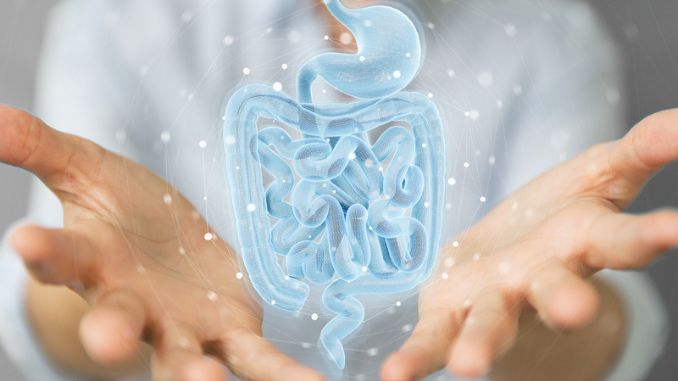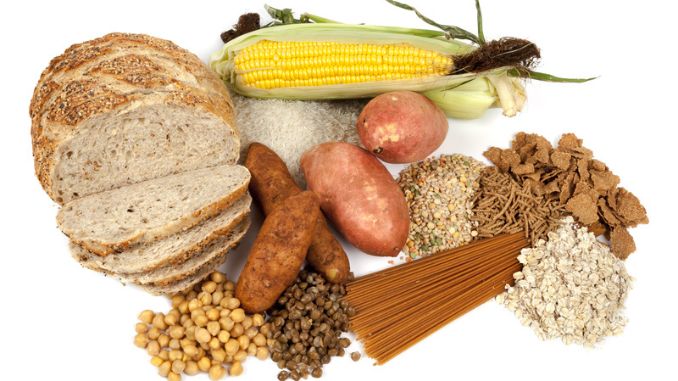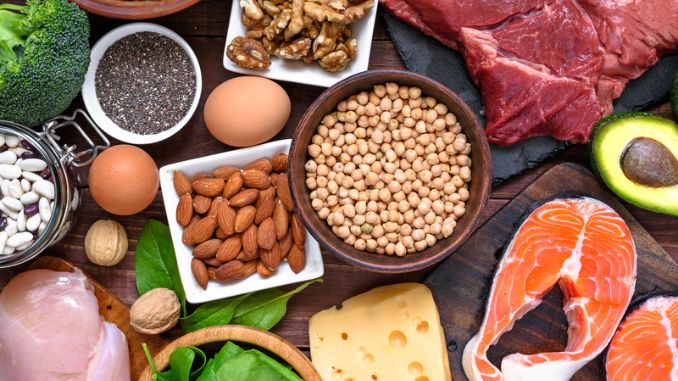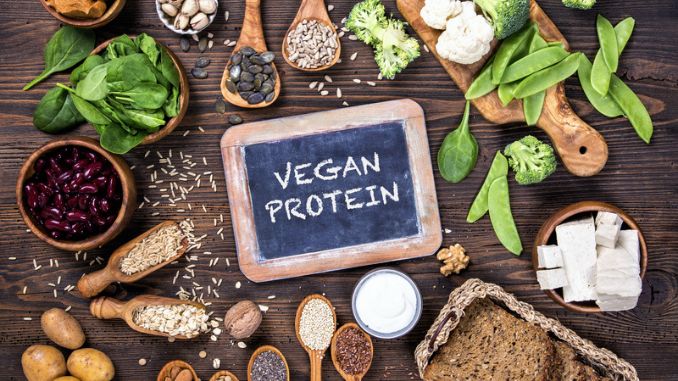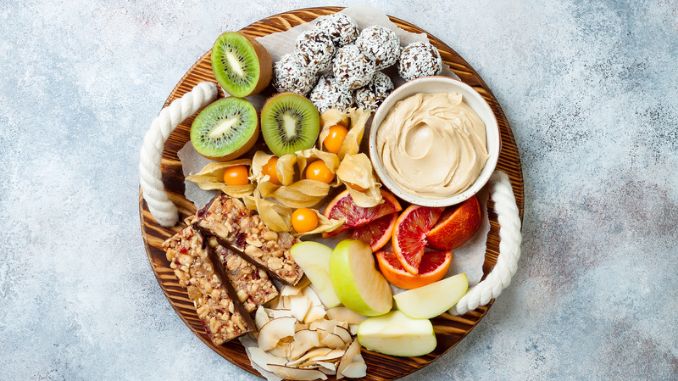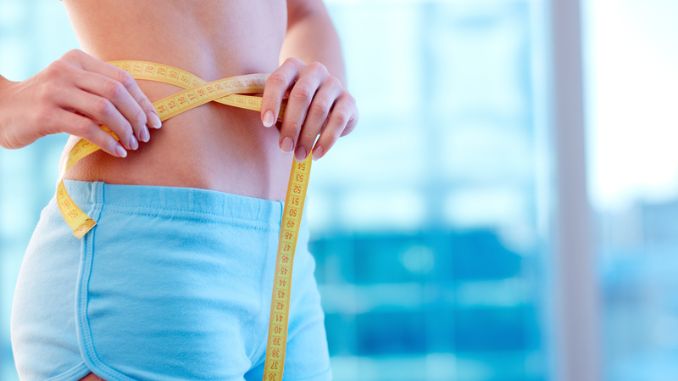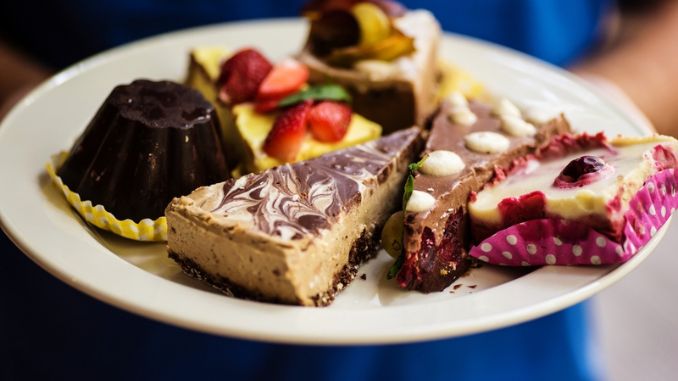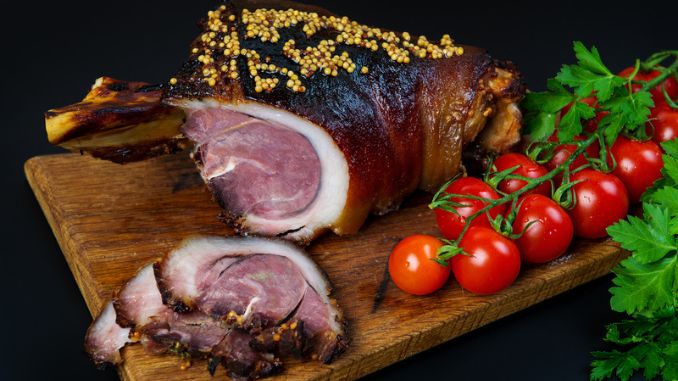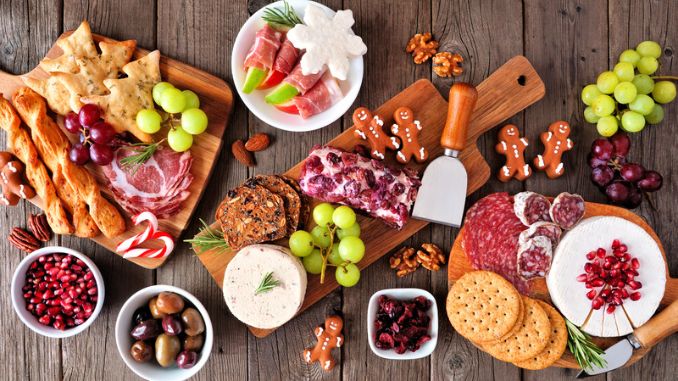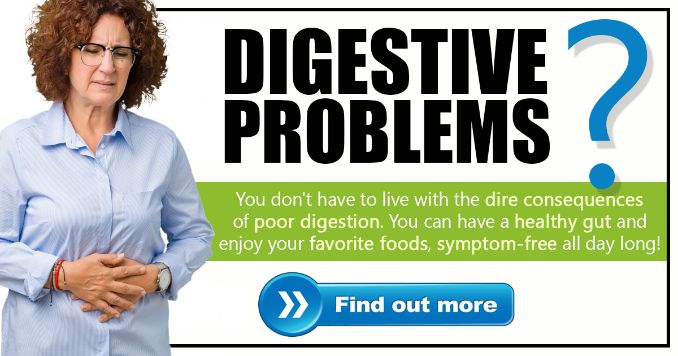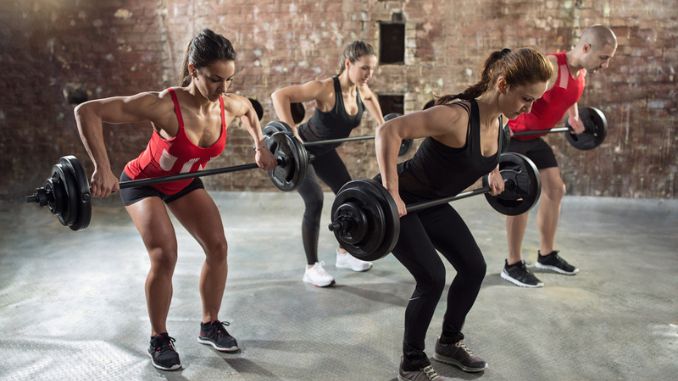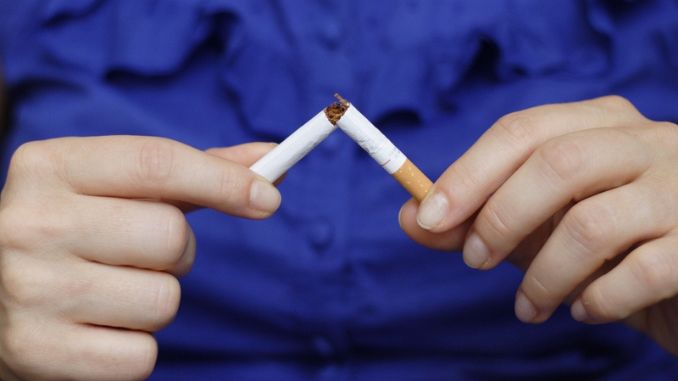We all eat, but how much thought have you given to it? There are many theories about what makes a healthy diet and which foods are best for us. But how does chewing affect digestion?
When you consider everything we know about nutrition and all the different foods, it’s almost impossible not to think about your diet at some point or another. As such, many studies have been conducted on various things relating to eating, such as how chewing impacts taste, whether or not chewing affects digestion, and even what the effects of eating fast versus slow might be. Let’s take the chewing of food as an example; for this article, we will focus on that particular action rather than eating as a whole.
Chewing and Digestion
Chewing affects digestion because it breaks down food into smaller pieces and helps release digestive enzymes that aid in digestion. When you chew, your saliva mixes with your food, allowing more digestive enzymes to break down the food and helping promote waste movement from your body.
In addition, chewing affects digestion because it helps stimulate the release of endorphins in the body and promotes a sense of well-being. Chewing also helps maintain oral health by protecting against cavities, gingivitis, and periodontitis. Furthermore, chewing is a great way to pass the time when you’re bored or can help relieve stress.
Although chewing can be enjoyable and beneficial for your health, it’s important not to overdo it. Gumming excessively can cause bad breath, tooth decay, and jaw pain. A good rule of thumb is to chew slowly and not eat or drink anything other than water while you’re doing so.
The Biomechanics of chewing
Chewing food involves the action of two sets of muscles: the jaw and the tongue. The tongue is a muscular organ at the front of your mouth that helps you swallow, taste, and chew food. The jaw comprises several different muscles that allow you to open your mouth and close it again. Food then moves down your throat and past your esophagus into your stomach, where it is digested.
When you eat, your salivary glands secrete saliva into the back of your mouth. Saliva contains digestive enzymes that help break down food into smaller particles so they can be more easily swallowed. These enzymes act on the food as you chew to help break it down further. Enzymes also help to absorb some vitamins and minerals from food so that they are available for absorption in your body. This process also helps reduce the risk of tooth decay by breaking down plaque and inhibiting bacteria from sticking to teeth.
Now it’s clear that chewing affects digestion and absorption of nutrients from food. However, how much you chew is up to you! Chewing releases neurotransmitters in the brain that are associated with feelings of fullness.
According to a study published in the Journal of the American Dental Association, adults who chew gum while eating may have better digestion than those who do not. Chewing slows the rate at which food moves through the body and encourages the release of digestive juices.
For most people, the key to optimal digestion is to consume enough fluids, but there are a few situations where drinking less may help your body absorb more nutrients. One example is during early pregnancy when your intestinal tract is significantly enlarged due to high hormone levels and a growing baby. When you don’t drink enough fluids, your body may not be able to absorb all the nutrients from your food.
The Benefits of Chewing Your Food
We all know that we’re supposed to chew our food, but do you know why? It’s not just to avoid embarrassing yourself in front of others—although that is a good reason. Chewing your food properly has several benefits, both for your health and enjoyment of your meal.
Firstly, chewing affects your digestion. Chewing your food properly helps your body digest it more effectively. When you chew food, you’re breaking it down into smaller pieces, which makes it easier for your stomach to break down and absorb the nutrients. Chewing also stimulates saliva production, which helps break down food.
Secondly, chewing your food properly allows you to enjoy the flavor and texture of your food more fully. When you chew slowly and thoroughly, you’re giving your taste buds and your nose a chance to experience the flavors and aromas of your food fully. And when you’re enjoying your food more, you’re more likely to eat less and feel satisfied after your meal.
Additionally, chewing slowly can help you to eat less overall since it takes your brain a little while to realize that you’re full.
Finally, aside from digestion, chewing is important for maintaining oral health. This is because chewing helps to remove food particles and bacteria from the teeth, reducing the risk of cavities and gum disease.
So next time you’re sitting down to eat, take a moment to chew your food properly. Your body—and your taste buds—will thank you for it!
Does chewing affect digestion?
You might not think about it much, but chewing affects your digestion. The act of chewing stimulates the production of saliva, which contains enzymes that help break down food. And the more you chew, the more saliva you produce.
So if you want to improve your digestion, take the time to chew your food thoroughly! Not only will it help your body to digest better, but it’ll also make it more enjoyable. So the next time you sit down to a meal, take the time to savor your food and chew slowly.
Is chewing food the key to quicker absorption?
You might think twice about chewing your food, but have you ever wondered how it affects the speed at which food is absorbed? The act of chewing is essential to the digestive process.
Chewing affects the digestion process. It begins in the mouth, and chewing is the first step. That’s why it’s so important to take the time to chew your food thoroughly. Not only will it help your body absorb the nutrients more efficiently, but it will also help you to avoid indigestion and other digestive problems. So the next time you sit down to eat, take a moment to appreciate the power of chewing!
Chewing and Carbohydrate Digestion
It turns out that there’s some science behind it. When chewing food, you’re essentially breaking down the carbohydrates in your food into smaller pieces to digest. These molecules are then absorbed into your bloodstream, where they’re used for energy. This process is called hydrolysis, and it’s important because it helps your body absorb the nutrients in your food more easily.
Once the carbohydrates reach your bloodstream, they’re broken down further by enzymes. This process continues until the carbohydrates are completely broken down into glucose, which is then used for energy by your cells.
Chewing and Protein Digestion
Did you know that your body starts to digest food before you bite? It’s true! The process starts with your saliva, which contains enzymes that break down carbohydrates and fats as soon as they come into contact with food. But the real work of digestion doesn’t begin until you start to chew.
As soon as you start chewing, the digestion of protein gets underway. Your saliva contains two enzymes: lipase and amylase, which primarily break down fats and carbs. Once a protein source hits your stomach, proteases and hydrochloric acid break down proteins into smaller chains of amino acids.
Amino acids are first separated from a protein into peptides containing several amino acids and then into individual amino acids. In the presence of an acid, the stomach secretes pepsins that break down proteins (proteolysis).
Most of us take chewing for granted. We do it automatically without giving it much thought. But chewing is a complex process that plays a vital role in digestion.
Chewing also sends signals to our brains that tell us when to stop eating. This is important because it helps us avoid overeating.
Go for Protein Before the Holidays
We all know that holidays are a time for indulgence. From rich, savory dishes to sweet, sugary desserts, it’s hard to resist indulging. But if you’re looking to stay healthy during the holidays, there’s one food group you should focus on: protein.
Protein is an essential part of a healthy diet, and it’s especially important during the holidays. That’s because protein helps you feel fuller longer, so you’re less likely to overeat. And if you overeat, protein helps your body better digest and absorb the excess calories.
So, how much protein should you aim for during the holidays? The amount you need depends on your weight and activity level, but a good rule of thumb is to aim for 0.36 grams of protein per pound of body weight. So if you weigh 150 pounds, you should aim for 54 grams of protein per day.
There are plenty of ways to get protein during the holidays. Turkey, ham, and beef are all excellent sources of protein. And don’t forget side dishes like beans, lentils, and tofu. You can enjoy the holidays without sacrificing health by focusing on protein-rich foods.
You might also be interested in knowing what foods you should eat before a holiday party.
Foods with Healthy Fats and Protein
With the holidays just around the corner, you may be thinking about indulging in some unhealthy foods. But before you do, consider these foods with healthy fats and proteins.
First on the list is salmon. It’s packed with protein and omega-3 fatty acids, which are great for heart health. Salmon is also a good source of selenium, a mineral that helps boost metabolism. If you’re not a fan of fish, try the chicken. It’s also high in protein for vegetarians and vegans, and it’s also high in iron and calcium.
Foods with Healthy Fats and Fiber
Make healthier choices to keep you fuller for longer and avoid the dreaded holiday weight gain blues.
One of the best things you can do is load up on foods with healthy fats and fiber. Foods like avocados, nuts, and seeds are all great sources of healthy fats that will help you stay satisfied. And fiber-rich foods like beans, whole grains, and vegetables will help keep you regular, an important consideration when eating a lot of rich fatty acids.
Protein and Fiber-rich Foods
Protein and fiber are the two essential nutrients that help to keep you feeling full and satisfied after a meal. And what better time to load up on protein and fiber than before the holidays? That’s right, folks. Go for protein and fiber before the holiday season hits, and you’ll be able to avoid overeating all those tempting holiday treats.
Load yourself on protein-rich foods like lean meats, fish, and legumes, and include plenty of high-fiber foods like fruits, vegetables, and whole grains. With a little planning, you can enjoy all your holiday favorites without overindulging.
Other great sources of protein and fiber include grilled chicken, salmon, lentils, black beans, quinoa, and leafy greens. And when it comes to holiday meals, go for protein-rich options like turkey and ham instead of carb-heavy dishes like stuffing and potatoes. By making smart choices, you can enjoy the holidays without packing on the pounds.
Protein Full Snack
If you’re looking for both nutritious and delicious, go for protein! Not only is protein a great source of energy, but it will also help you stay fuller longer. Plus, there are so many different ways to enjoy it. Here are a few of our favorite protein-packed snacks:
- Hard-boiled eggs: An egg a day keeps the hunger pangs away!
- Hummus and veggies: This classic combo is always a hit.
- Peanut butter and apples: A delicious and healthy way to satisfy your sweet tooth.
- Greek yogurt: A yummy and filling snack that’s perfect for the on-the-go.
- Nuts: A great source of protein and healthy fats.
These are just a few of the many foods that are high in protein and healthy fats. So next time you’re feeling hungry, reach for one of these options instead of something unhealthy.
Chewing may affect weight loss in how?
Some believe chewing is essential for the breakdown of food, while others claim that it has little to no effect on digestion. However, recent studies have shown that there may be a link between chewing and weight loss. Chewing causes you to eat more slowly, which gives your body time to register that you are full. This may lead to weight loss over time.
People who chewed their food more slowly and thoroughly were found to have lower levels of the hunger hormone ghrelin. This means they felt fuller for longer and were less likely to snack between meals. So if you’re trying to lose weight, take the time to chew your food thoroughly. It might just be the key to success.
Mastication is chewing your food and breaking down carbohydrates and fats. So, how exactly does mastication lead to weight loss? Well, when you chew more, you end up eating less. That’s because it takes your brain 20 minutes to register that you’re full. So, you’re less likely to overeat if you’re still chewing when that 20-minute is up.
The next time you want to lose weight, don’t forget to chew!
Chew Your Food: But Not Too Much
Again, chewing affects digestion. It helps break down food so that it’s easier to digest. It also increases the food’s surface area, allowing your body to absorb more nutrients. And, of course, it helps prevent choking.
But how much should you chew your food? That depends on what you’re eating. For softer foods, like fruits, vegetables, and cooked foods, you don’t need to chew as much. You might only need to chew 10–15 times before swallowing. But for harder foods, like raw vegetables, meat, and grains, you’ll want to chew more to help break them down. A good rule of thumb is to chew each bite 20–40 times before swallowing. That might be a lot, but it’s not that difficult once you get used to it.
Before Your Holiday Celebration: Plan, Shop, and Prep!
Before you start your holiday celebration, it’s necessary to plan, shop, and prepare! That way, you can avoid any potential digestive problems. And, of course, you’ll want to ensure you have plenty of food to keep your guests happy. Planning, shopping, and preparing before your holiday celebration is important.
If you’re hosting a holiday dinner, you’ll want to ensure you have all the necessary ingredients. This includes the main course, sides, and any special ingredients your guests might need, like gluten-free or vegan items. You’ll also want to ensure you have all the necessary supplies, like serving dishes, utensils, and linens.
Once you have everything you need, it’s time to start prepping. If you’re making a dish that can be made ahead of time, do it! This will save you time and stress on the day of the event. You can also prepare by setting the table, putting out serving dishes, and getting other details ready.
The Best Foods to Eat at Holiday Events
We all know the feeling of being stuffed after a big holiday meal. Our stomach is designed to break down the food further, using acids and enzymes. Once the stomach is finished, the food moves into the intestines, where more nutrients are absorbed. Finally, the remaining waste is passed through the colon and out of the body.
So what are the best foods to chew during the holidays? Here are a few of our favorites:
- Chewy sweets like caramels or toffees
- Fiber-rich foods like mashed potatoes or sweet potatoes
- Healthier desserts like fruitcake
- Tough cuts of meat like steak, roasted turkey, or beef jerky
- Fruits and vegetables with high water content, like watermelons, cranberries, or celery
Holiday events are the perfect opportunity to try new foods. If you’re sick of the same old turkey and stuffing, mix things up and try something new. Try a little bit of everything.
This is a great time to connect with other people. When trying new foods, you’re more likely to start a conversation with someone you wouldn’t normally talk to. So, mix things up this holiday season—your stomach and social life will thank you for it.
The Worst Foods to Eat at Holiday Events
The holidays are a time for family, friends, and, of course, food. But not all holiday foods are created equal. Some of them can be pretty tough on your digestion. Here are a few of the worst offenders:
- Fried foods: Fried foods are hard to digest and can cause stomach pain.
- Spicy foods: Spicy foods can cause indigestion and heartburn.
- Alcohol: Alcohol can irritate the stomach and cause indigestion.
- Caffeinated beverages: Caffeine can cause stomach pain and make it difficult to sleep.
- Rich desserts: Rich desserts are high in sugar and fat and can be hard on the digestive system.
So, if you want to avoid digestive problems this holiday season, steer clear of these foods. Stick to lighter fare like fruits and vegetables, and you’ll surely have a happier tummy.
Easy Holiday Dinner Recipe That Will Have Your Guest Raving
The holidays are upon us, so it’s time to start planning and prepping for all those holiday parties! But what if you’re not a big fan of cooking? Or you’re just too busy to spend hours in the kitchen? Never fear; your chew-and-know dinner party is here! With this simple and delicious dinner party, you can spend more time with your guests and less time in the kitchen.
Here’s what you’ll need:
- 1 bottle of red wine
- 1 bottle of white wine
- 1 baguette
- 1 variety of cheese
- 1 fruit plate
- 1 charcuterie plate (cured meats, veggies, nuts, olives, fruits, crackers, and spreads)
To prepare, uncork the wine, slice the baguette, and arrange everything on a large platter. That’s it! Cheers! Your guests can help themselves to whatever they like, and you can relax and enjoy the party.
There are many different ideas about what constitutes a healthy diet and the best foods for us. What, then, does science have to say on the subject?
When it comes to eating, there are a lot of options available. From vegetarianism to veganism, from raw to cooked, from low-fat to high-protein, and from sweet to savory, there are countless different ways to eat. And each option has advantages and disadvantages regarding taste and nutrition.
However, when it comes to what we eat, there’s one factor that remains constant: the need to chew. Chewing breaks down food so that it can be digested. Choosing the right food and chewing it well help ensure you get the most out of your meals.

Rick Kaselj MS, is a leading kinesiologist and injury specialist as well as co-creator of the best-selling Unlock Your Hip Flexors program. Rick creates exercise programs that help people heal injuries and eliminate pain, so they can go back to living a full, active, healthy life.



